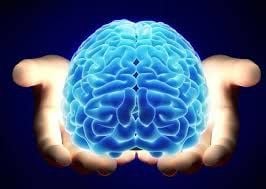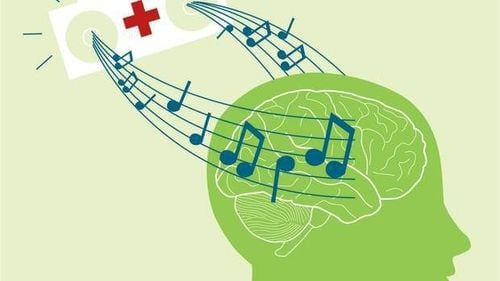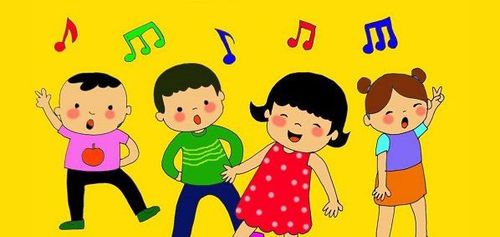This is an automatically translated article.
If you want toned body, go to the gym. If you want to exercise your brain, listen to music. “There are very few things that stimulate the brain the way music does,” says a Johns Hopkins otolaryngologist. If you want to keep your brain working properly, listening or playing music is a great tool. It provides a complete brain workout. ". The article will help you better understand the role of music in promoting your brain development.
1. The powerful effect of music on the brain
Music has been scientifically proven to have a powerful effect on the brain. Recent research shows that music can help in many aspects of the brain, including reducing pain, reducing stress, enhancing memory and reducing brain injuries. In her book The Power of Music, Elena Mannes writes, "Scientists have discovered that music stimulates more parts of the brain than any other function in the human body." Let's look at some of the ways music can aid healing and stimulate the human brain.
1.1. Pain relief
“I think music itself is a cure-all. It is a positive expression of music towards people. We can all feel it. No matter what culture we come from, everyone will love music." — Billy Joel - a famous singer shared
A 2014 study found that music is very useful for people. In fibromyalgia patients, research has shown that listening to relaxing music that patients choose helps “relieve pain and significantly increase mobility.” The researchers believe that music eases pain because Listening to music activates opioids — the body's natural pain relievers.

Bản thân âm nhạc chính là liều thuốc chữa bệnh.
1.2. Reduce stress
Depending on the type of music we listen to, relaxing music can reduce stress by lowering levels of cortisol, which is a hormone released in response to stress.
A 2013 study demonstrated a link between music and reduced stress in pediatric patients in the emergency room. “In a trial of 42 children aged 3 to 11, University of Alberta researchers found that patients who listened to relaxing music while having an intravenous infusion tube in place showed less sensation. pain was significantly more pronounced and some children showed significantly less discomfort than patients who did not listen to music.” According to the American Psychological Association.
1.3. Improve memory
Studies linking music to memory enhancement have been on the rise since the early 20th century, when this study first appeared. Listening to certain music can bring our minds back in time decades ago. In a post on music and health forums titled "Study shows that music enhances brain activity in patients with Alzheimer's disease," the study's authors cite the film. documentary Alive Inside, the film chronicles how music awakens patients with dementia. Neuroscientist Oliver Sacks states, “Music evokes emotions and emotions can carry memory... It brings a sense of life that nothing else can.”
A 2014 study was performed on 89 patients with dementia. In which, patients and caregivers were randomly assigned to a 10-week music training group, a 10-week singing training group, or regular care. The results demonstrated that “Compared with usual care, both singing and listening to music improved mood, orientation ability, distant and proximal phased memory, both attention and executive function. and common sense. Singing also enhances short-term memory and memory performance, as well as caregiver well-being, while listening to music has a hugely positive impact on people's quality of life."
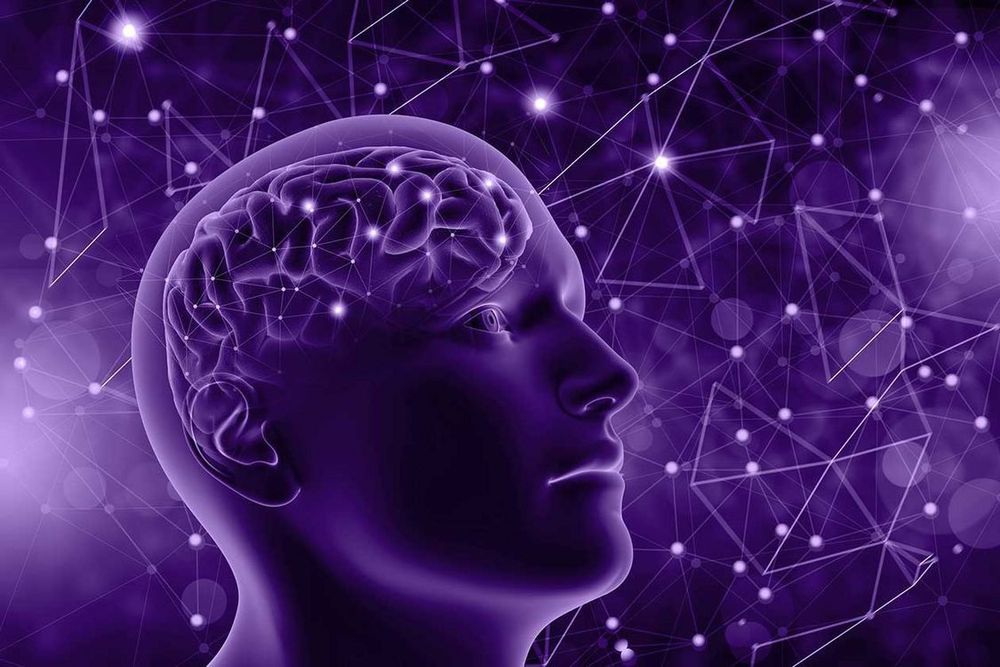
Âm nhạc tăng cường hoạt động của não ở các bệnh nhân mắc bệnh Alzheimer.
1.4. Seizures, brain injury or stroke
It has been reported that the brains of epilepsy patients respond to music differently than those of non-epileptic subjects. “People with epilepsy have seizures when they have seizures. However, in our study, patients with epilepsy synced to music without having seizures.” Christine Charleston, of Wexner Medical Center, Ohio State University, USA. Charlton explains that stress causes seizures and adds, "By listening to music, many patients report feeling relaxed."
According to a 2008 study, stroke patients who listened to music in the early stages of a stroke showed an improvement in their ability to recover. The study's author, Teppo Särkämö, suggests that patients start listening to music soon after a stroke, as many changes occur during the first weeks and months of recovery. “We found that three months after a stroke, verbal memory improved from the first week after the stroke by 60 percent in those who listened to music,” says Särkämö.
In 1973, a music-based treatment called Melodic Intonation Therapy was developed to help stroke survivors or people with aphasia to communicate again. The goal of therapy is to convert vocals into speech. According to Research and Hope, although these patients are unable to speak, "they can often sing, sometimes, with the same fluency and clarity as before the onset of illness."
2. 5 ways to help apply music to brain development
2.1. Learning to play an instrument boosts memory
Whether it's the guitar or the flute, playing an instrument boosts your memory recall and protects it from the damaging effects of aging. Because learning an instrument involves a complex list of tasks (like placing fingers and reading musical notes), your brain has to work harder and learn to memorize very well. Over time, your brain will learn how to multi-task without getting overwhelmed, and you'll remember information for longer. In addition, playing in a musical group (like in an orchestra) also strengthens your ability when you have to process information in a more complex context.
2.2. Music practice makes you smarter
Learning an instrument is like an Olympic Games for the mind. It teaches the brain how to solve problems, which is why people with musical training are often better at math, science, and engineering in life. However, timing is everything: Results are better when you start at a younger age. Children's minds are still in the process of forming. Their brains are still actively developing and being molded. The more intense the music practice, the more the brain develops. "[In musical training], your body is asking for a whole bunch of core cognitive systems," says Petr Janata, a cognitive neuroscientist at the University of California Davis Center for Mind and Brain. core participants... There have been studies showing that the time when the verbal memory of children learning music has increased."
However, adults can still benefit from musical training, because the mind stays flexible throughout our lives. Keeping your memory active will help slow cognitive decline. So it's never too late to reap the benefits of music.
2.3. Group singing makes you happier
The act of singing sends vibrations through the body, while lowering cortisol (stress hormone) levels and releasing endorphins, making us feel fulfilled. The change in tune of a singing group releases more dopamine in the body, leading to a feeling of euphoria. Research shows that choir singing also releases the antibody s-IgA, which boosts our immune system - especially when the song is being played. Singing also helps release oxytocin (the love hormone), doctors say, so even singing alone can give an immediate mood boost.
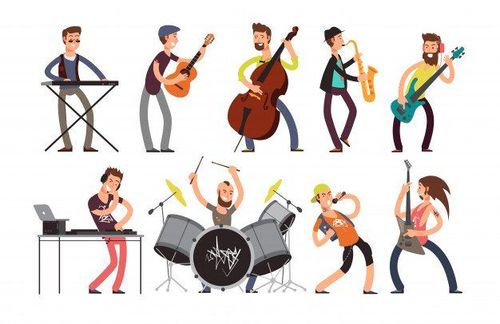
Hành động ca hát sẽ giúp giảm căng thẳng và tăng niềm vui.
2.4. Listening to pain relief music
Do you listen to your favorite music on the way to work? It's not simply a fun pastime - a team of Swedish researchers have found that regularly listening to music you enjoy lowers your cortisol levels. It can also be a great pain reliever by both distracting you and boosting your positive emotions. Music also has the ability to evoke nostalgia. Nostalgia is essentially a mechanism that gives meaning to our lives and helps us get through our times of crisis.
2.5. Drums can kick-start brain function
The brain instinctively synchronizes to rhythm, any and all rhythms - this explains why you would subconsciously walk (or run) to a certain rhythm. So music that has a rhythm (such as a drum) affects the brain in a very specific way. Percussion instruments are a lot easier to learn than the cello, and you can get immediate results from the combination of sound, vibration, and visual experience.
In fact, therapists use drumming to reach patients with severe dementia and Alzheimer's who are often unresponsive to external stimuli. Neuromusic music therapist Kimberly Sena Moore recalls a home school session with a veteran where severely impaired Alzheimer's patients were rocked with a simple drumming exercise. "It's all in a connected circle and you can see their change instantly," she says. "There was more eye contact, there were some people smiling, there was social interaction in them, they also noticed and responded to the drumming inside of themselves and what others were doing. It's automatic sensory feedback." Drums aren't just beneficial for people with dementia or Alzheimer's, though. Studies prove that drumming is a great stress reliever even for people with healthy brains.
When it comes to music as therapy, drumming is the method of choice but music training in general also has amazing regenerative power over the human mind. Experts are still trying to figure out how our brains can hear and play music. The stereo system creates vibrations that travel through the air and somehow get inside the ear canal. These vibrations stimulate the eardrum and are converted into an electrical signal that travels through the auditory nerve to the brain stem, where it is assembled into what we perceive as music. We only know that music can really change many aspects of each person's daily life and we should take advantage of it to develop our physical and mental health.
Please follow the website: Vinmec.com regularly to update many other useful information.
Please dial HOTLINE for more information or register for an appointment HERE. Download MyVinmec app to make appointments faster and to manage your bookings easily.
Reference articles: webmd.com, thetabernaclechoir.org, hopkinsmedicine.org




